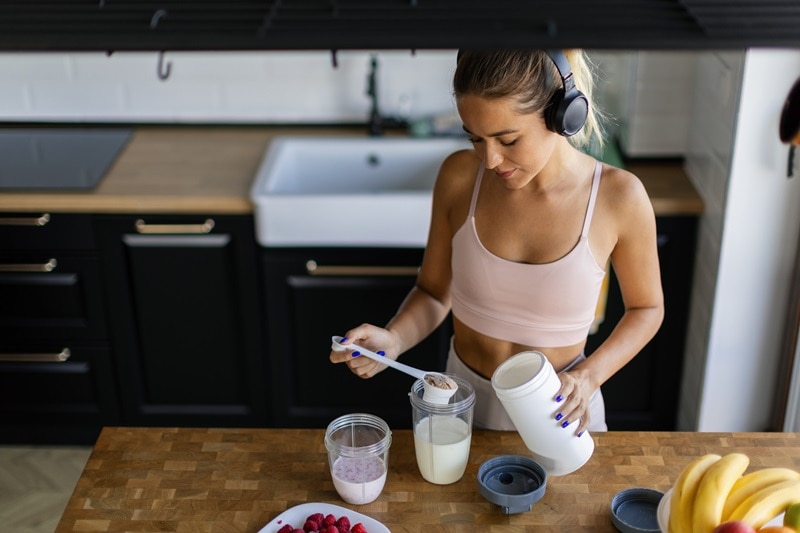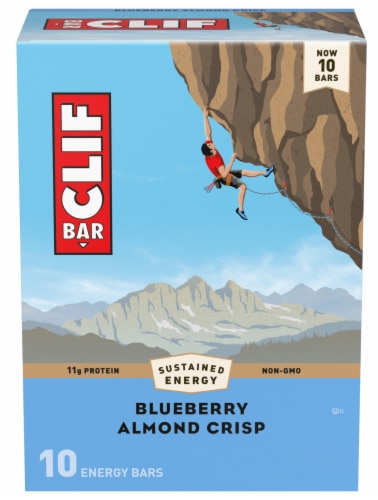[vc_row][vc_column][vc_column_text]What you eat and drink each day is what fuels your daily activity, and if you want to make the most of your workouts, learning how to use
nutrition strategically for better performance and recovery is key. All the
energy your body needs for your training comes from calories in carbs, proteins and fats, but how your body makes use of these
macronutrients depends a lot on when you eat them and how they're combined in each meal.

How Your Body Uses Food for Fuel
Your body uses the foods and drinks you consume to fuel your activity. When you eat, your body breaks down the food into simpler forms, such as sugars (mostly glucose), amino acids, fatty acids and glycerol. Each can be drawn on for energy, depending on the type and length of activity you're doing. Here's a quick breakdown of each macronutrient and how your body uses them to fuel your workouts.
Carbohydrates
Your body's preferred energy source is glucose, which comes from carbohydrates, and most of the activity you do uses it for fuel. Glucose
provides energy for everyday tasks and more intense training quickly and efficiently.
A process called glycolysis breaks down glucose to create ATP (energy for cells) that's used right away. Any excess glucose is converted into glycogen through glycogenesis and stored in the liver and muscles for later use. When needed, glycogen can be converted back into glucose via glycogenolysis. Having a supply of glycogen available is also important for your body to repair itself after exercise.
Fats
Fats break down into
fatty acids that help you sustain longer, lower-intensity exercise like
walking or jogging. Using a process called beta-oxidation, your body breaks down these fatty acids to produce ATP. Any excess is converted into triglycerides through lipogenesis and stored in fat cells as a long-term energy reserve.
Fats are useful for energy when your body doesn't have to give you a jolt of quick energy with glucose. During slower, longer activity, your body has time to break down fats for fuel. You'll use carbohydrate stores first, but when glycogen stores run out, your body will shift to using fats, which your body can store in much larger amounts.
Proteins
Proteins
break down into amino acids which are necessary for building and repairing tissues, but can also be called on for energy if your carbs and fat stores are low, but it's not ideal. A process called gluconeogenesis can turn amino acids into glucose, or, through ketogenesis, they can be turned into
ketones for energy.
This process is inefficient and doesn't produce as much ATP as carbs and fats. Also,
amino acids have much more crucial roles to fill, building, repairing and creating enzymes. Amino acids also don't have a storage place in the body, so if you rely on them for energy, they'll be diverted from these important tasks.
Do Micronutrients Provide Energy?
Micronutrients don't supply energy, but they are powerhouses as assistants, supporting your body's processes during activity and repair afterward. Here are a few to be mindful of and include in your meals for the best chance of performing and recovering optimally.
B vitamins are essential for converting food into energy, making them especially important for active people, but
studies show that they
are more likely to have deficiencies. B vitamins are
necessary for repairing damage to muscle cells and synthesizing red blood cells, optimizing performance, reducing
fatigue and muscle soreness, and supporting overall health.
Iron is crucial for recovery because it's a key component of red blood cells, which deliver oxygen and nutrients to muscles and tissues.
Iron deficiency, more common in women, can impede recovery by causing fatigue, weakness and poor performance.
Potassium is vital for multiple bodily functions that you need for exercise, including muscle contractions, nerve transmission and fluid balance. Getting enough potassium supports optimal performance and recovery.
Magnesium is essential for muscle function, recovery and protein synthesis, so it can help reduce muscle soreness and support overall recovery.
Should You Eat Before or After a Workout?
The hard and fast rule for pre-workout meals is the closer to your training, the smaller and easier to digest they should be. This means avoiding a lot of fat and fiber, which both slow digestion, and focusing on quick carbs and protein.
- For larger meals 2 to 3 hours before your workout, choose more carbs (such as 4g per kg). Eating more complex carbs here is useful for sustained energy and healthy fiber.
- For smaller meals or snacks an hour or less before your workout, go for the lower end. Be sure the carbs in this meal are quick-digesting, such as lower-fiber fruit (bananas, watermelon, grapes, cantaloupe, mango) and simple starches (white rice, potatoes, rice cakes, pretzels, low-fiber cereal with skim milk).
Meal timing tips for cardio
You may have guessed by now that getting carbs in before your workout is the best way to fuel yourself, especially for cardio.
Research backs this up, showing that
pre-workout carbs have a big impact on your improving your performance. You can get your protein before or after your cardio training but avoid high-fat meals in the two or so hours before training. Here are some tips for making the most of your pre-workout meals:
- Before your workout, consume 1 to 4 grams of carbs per kilogram (2.2 lbs) of body weight. You can opt to consume protein before or after working out but aim for 25 grams of high-quality protein per kilogram of body weight, or about 20 to 40 grams around your training.
- During your workout, for endurance training, you can benefit from 30 to 60 grams of carbs per hour of training.
- After your workout, be sure to refuel with both carbs and protein, which work together to replenish and repair your body.
Meal timing tips for resistance training
Resistance training combines cardio work with lifting weights or bodyweight exercises and can be more focused on power or muscular endurance. Either way, you'll want to fuel up with carbs and get enough protein either before your workout, after or both.
- Before your workout, eating protein and carbs can boost your performance and recovery by increasing muscle glycogen. Aiming for 20 to 40 grams of protein every 3 to 4 hours through the day is a good idea.
- During your training, you shouldn't need additional carbs unless you're training hard and heavy for quite a while. If this is the case, aim for 2g of carbs/kg per hour of training, focusing on high-glycemic (easily digestible, low fiber) carbs you can use quickly.
After your workout, refuel with both protein and carbs. Carbs pair with protein to help replenish and repair your tissues and are both necessary for muscle protein synthesis, which is what will build muscle mass.[/vc_column_text][/vc_column][/vc_row][vc_row][vc_column][vc_text_separator title="Featured Products" border_width="2"][vc_row_inner equal_height="yes" content_placement="middle" gap="35"][vc_column_inner width="1/3"][vc_single_image image="180182" img_size="full" alignment="center" onclick="custom_link" img_link_target="_blank" css=".vc_custom_1732626100583{padding-right: 7% !important;padding-left: 7% !important;}" link="https://www.vitacost.com/simple-truth-organic-toasted-oats-cereal-whole-grain"][/vc_column_inner][vc_column_inner width="1/3"][vc_single_image image="180179" img_size="full" alignment="center" onclick="custom_link" img_link_target="_blank" css=".vc_custom_1732626121959{padding-right: 7% !important;padding-left: 7% !important;}" link="https://www.vitacost.com/bodyhealth-perfectamino-100-coated-tablets"][/vc_column_inner][vc_column_inner width="1/3"][vc_single_image image="180180" img_size="full" alignment="center" onclick="custom_link" img_link_target="_blank" css=".vc_custom_1732626136124{padding-right: 7% !important;padding-left: 7% !important;}" link="https://www.vitacost.com/lundberg-brown-rice-cakes-organic-whole-grain"][/vc_column_inner][/vc_row_inner][/vc_column][/vc_row]




